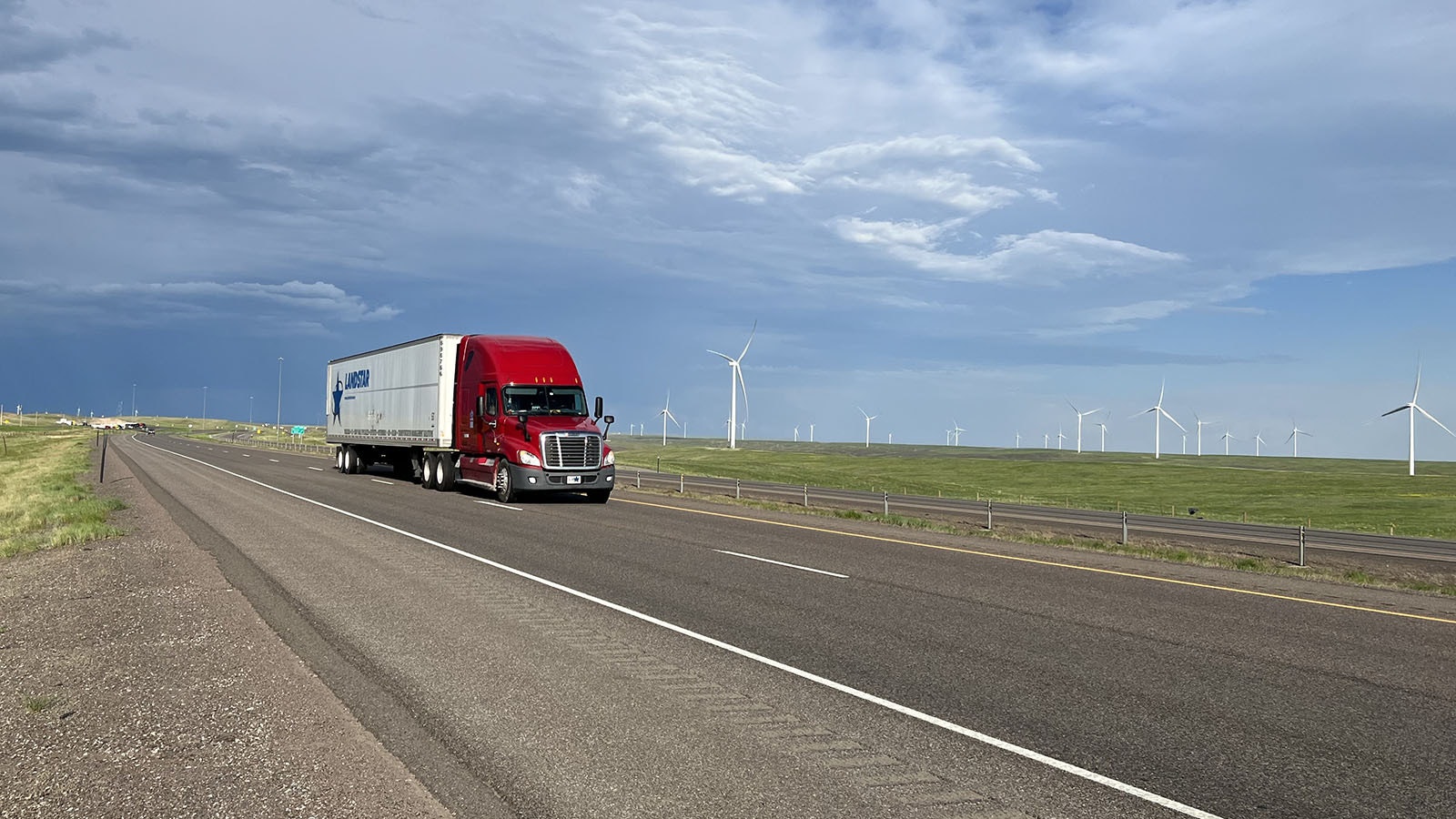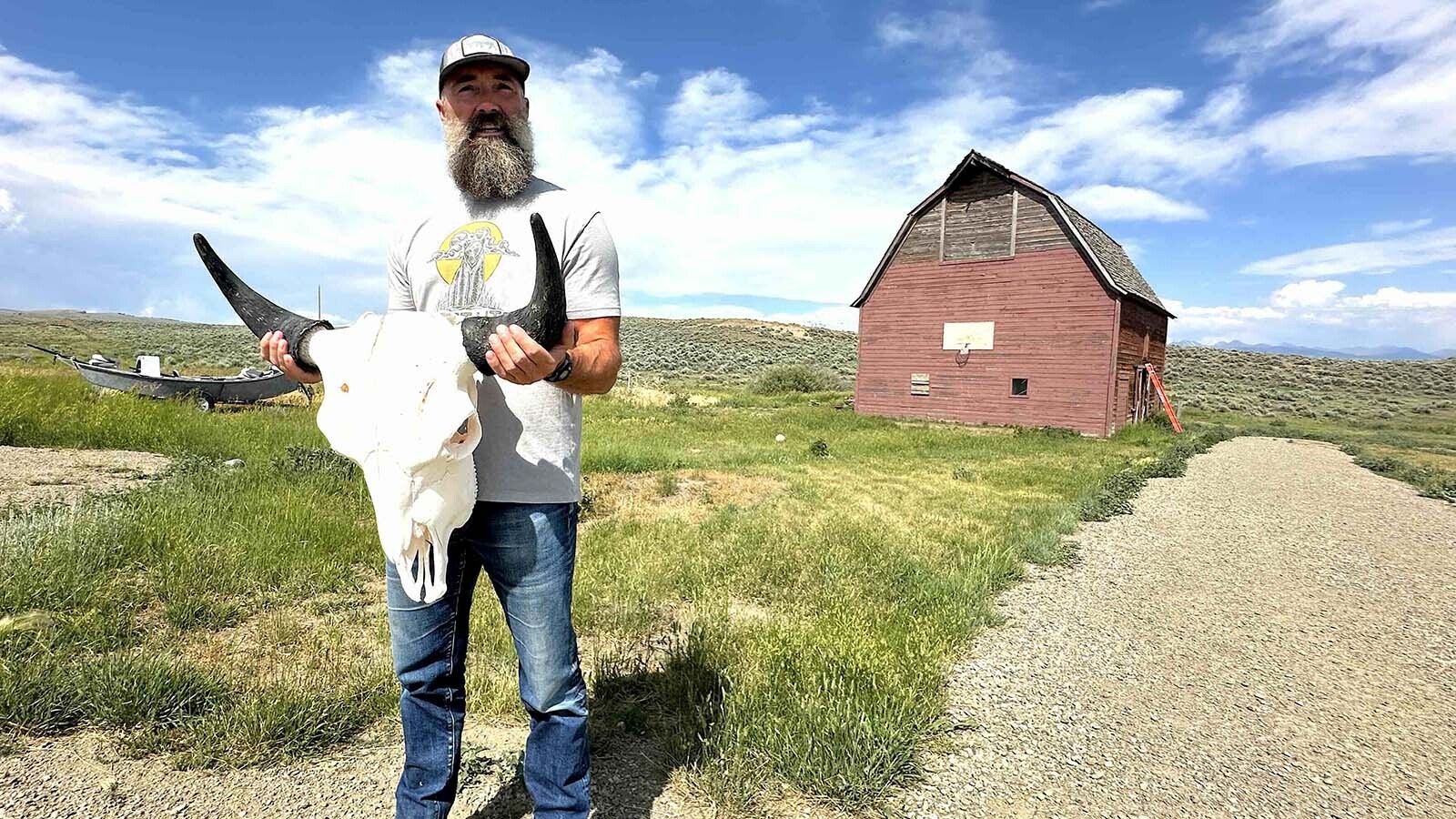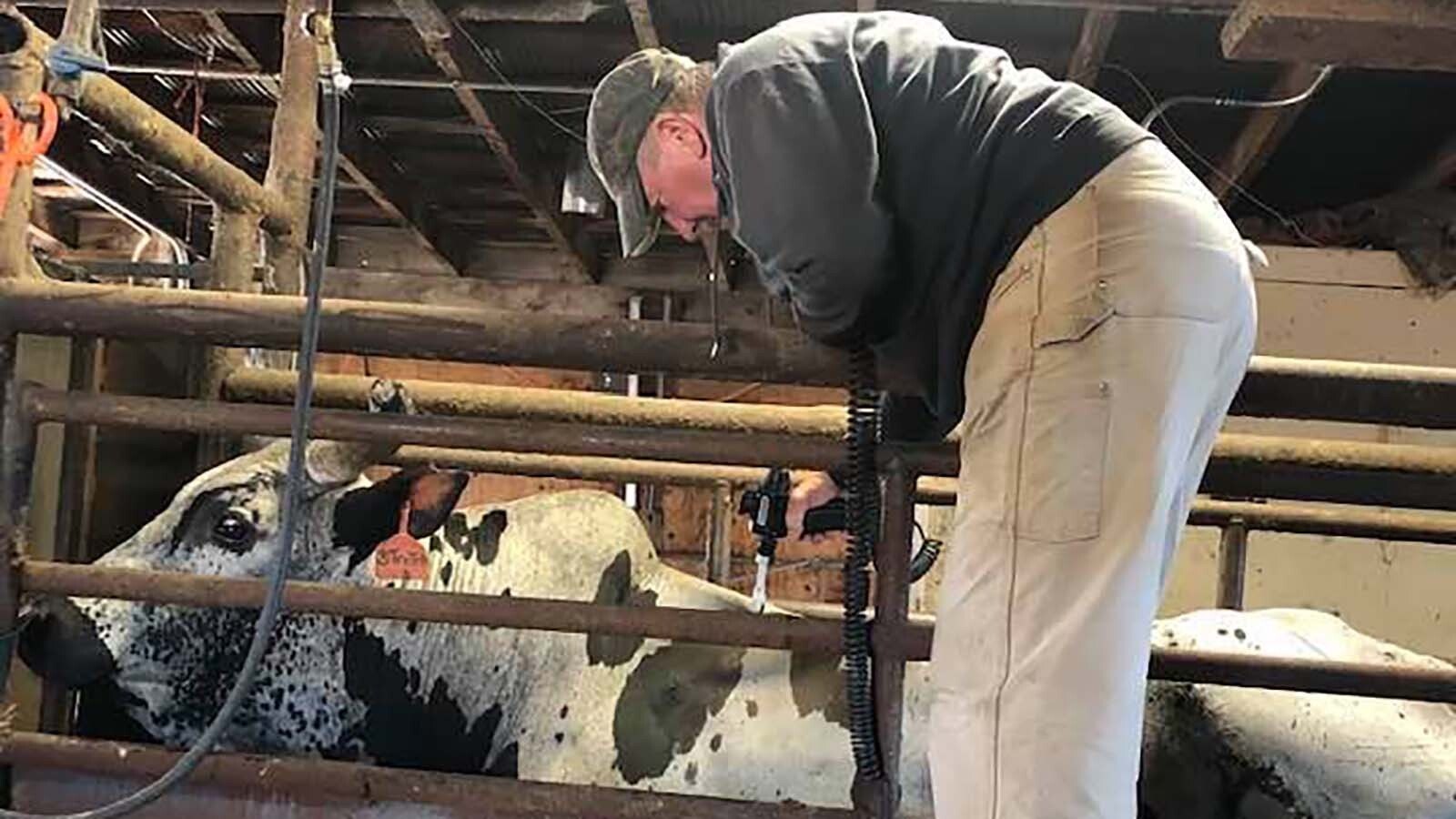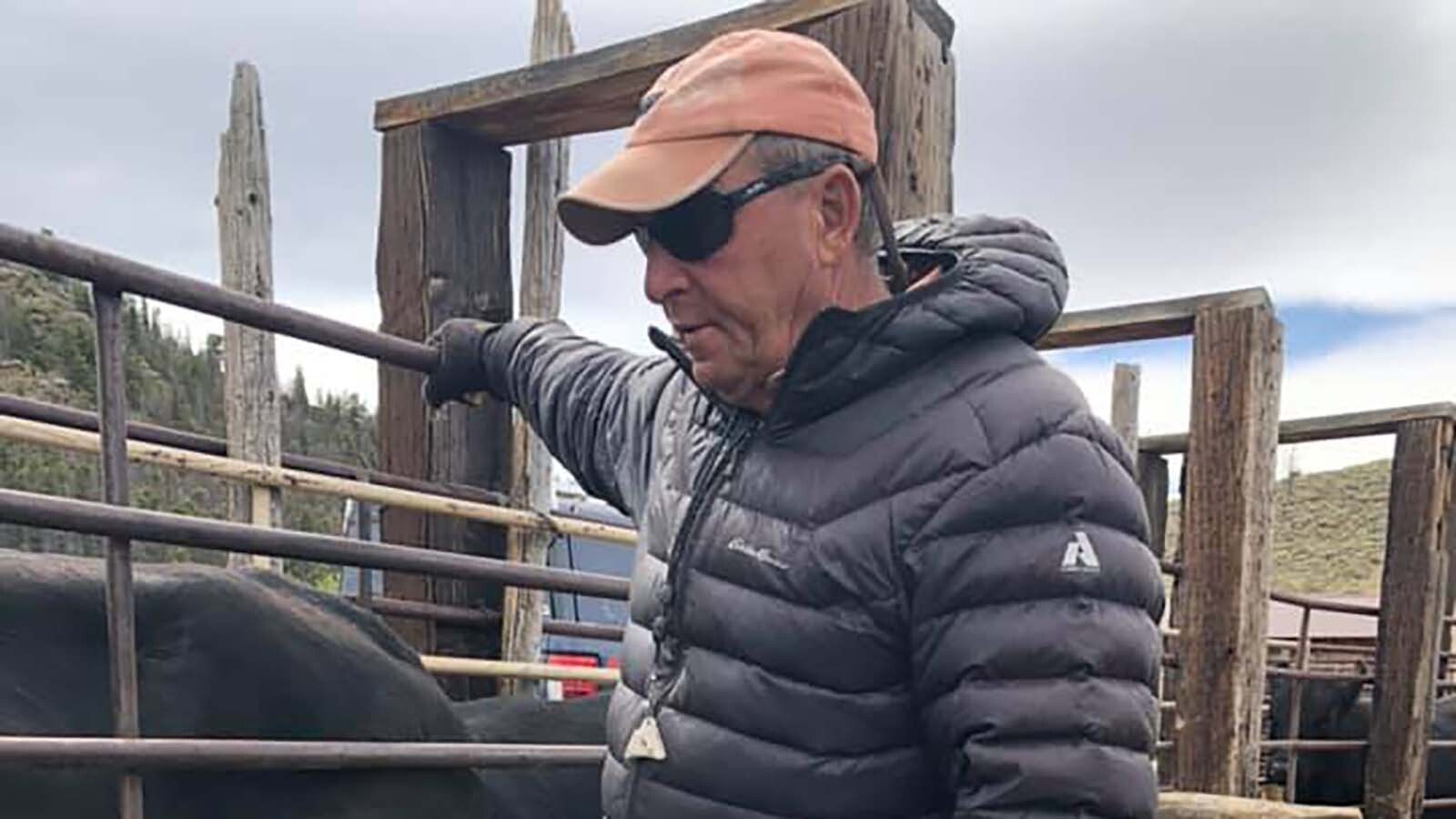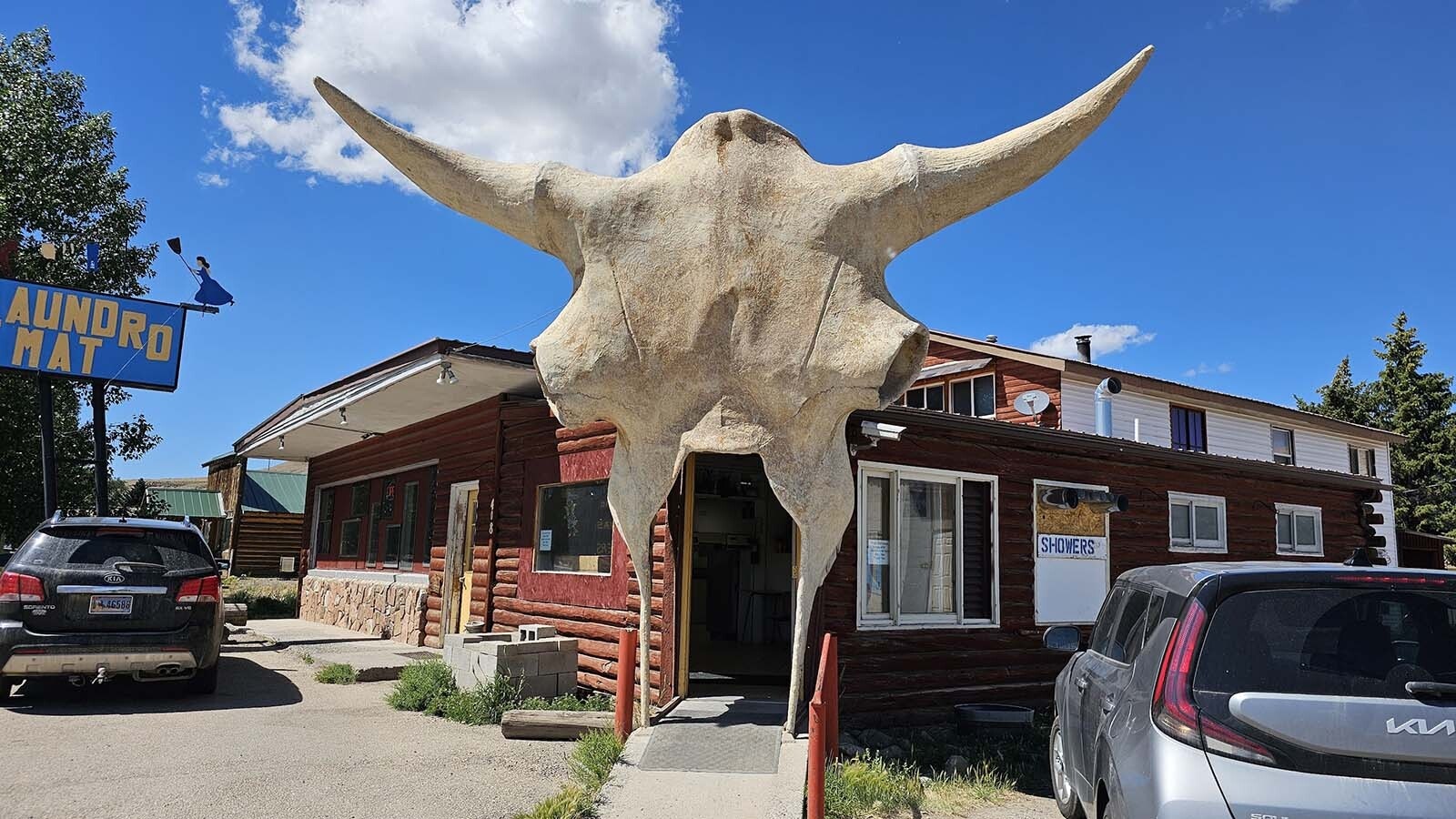Many commercial truck drivers say their industry has changed a lot in recent years, and mostly not for the better.
“They’ve taken the industry I’ve loved, and they’ve just destroyed it,” Cheyenne truck driver Mark Sutherland said. “I blame the federal government on a lot of that.”
In some ways, Interstate 80, a dangerous high-elevation highway that is prone to closing because of weather, puts the shortcomings and weaknesses of the U.S. trucking industry on full display. The I-80 corridor is one of the most used east-west routes used by truck drivers shuttling goods to destinations across Wyoming and beyond.
There have been about 8,100 crashes on I-80 over the last five years, of which nearly 51% involved a commercial vehicle, the Wyoming Department of Transportation reports.
WYDOT Assistant Chief Engineer for Engineering and Planning Keith Fulton told the Legislature’s Transportation, Highways, and Military Affairs Committee last week that 78% of the commercial vehicle crashes over that time happened when roads had ice, frost or snow on them.
But there has been an overall reduction in incidents as well over that five-year period.
Driver Shortage
Sheila Foertsch has been president of the Wyoming Trucking Association since 1993.
Foertsch said her industry is struggling through a driver shortage that grew significantly in Wyoming about five years ago. She believes there are many economic reasons for the shortage, but pay isn’t one of them.
Sen. Stephan Pappas, R-Cheyenne, believes the shortage of truck drivers has led to more inexperienced drivers being put on the highways.
“They’re putting people on the road a lot sooner,” he said. “And then when they get to Wyoming, they have less experience driving in wind and in ice and snow.”
Hard Lessons
Dave Lankford worked for the Wyoming Highway Patrol from 1977-2001 and also served as Sublette County Sheriff from 2011-2014. Lankford covered the portion of I-80 from Green River to the Little America Resort west of there.
Lankford said although the number of trucks on I-80 increased dramatically during his time, the overall skill and experience of truckers has declined over the years. He’s encountered some who didn’t know how to put chains on their vehicles.
He said lessons like these can’t be taught and can be difficult to convey at trucking schools not based in the West.
“It’s a learning curve just like anything else in life,” he said.
Wyoming truck driver Jerry Walker said he rescued a trucker on a mountain pass outside Jackson who was wearing shorts and didn’t have any tools in his cab.
“How crazy it is to turn somebody loose with 80,000 pounds of metal with no experience in the middle of Wyoming in the middle of a blizzard wind blowing 40-50 mph? Is that not nuts, or is that OK?” Walker questioned.
He believes respect for the industry and safety go hand-in-hand.
“This is pride,” he said. “This is something not everybody can do, but everybody looks down on us, and it's embarrassing to look at this kind of driver we have nowadays and just see how they act crazy.”
Foertsch said certain changes to the industry, such as increased regulations, haven’t helped with recruiting and retaining drivers.
Commercial Driver’s License
Sutherland, who runs Cheyenne-based Sutherland Trucking, has been working in the industry since 1984.
He said many of the issues plaguing the trucking industry can be traced to the inception of the commercial driver’s license, established in 1992.
Prior to that, Sutherland said Wyoming required applicants to receive a signed affidavit from another person vouching for their responsibility as a driver.
Sutherland said the implementation of the CDL caused the industry to lose an entire sector of older drivers who refused to get the new license. Foertsch said another batch of drivers was lost when the federal government instituted mandatory drug testing.
“It wasn’t because they were doing drugs. It was because they had never done drugs and kind of resented the fact they had to prove that they never did,” she said.
Electronic logging devices also became mandated in 2019, replacing paper logs that were previously used to track drivers’ hours behind the wheel.
“That was a tough thing for them to adjust to, but now you have drivers that would never want to have to go back to paper logs,” Foertsch said.
Driving Schools
Some driving schools allow students to obtain a CDL in as little as three weeks. Sutherland doesn’t believe there’s a shortage of drivers overall; rather, just a shortage of qualified drivers.
He said there were only a few driving schools prior to this time, but the inception of the CDL ballooned the industry.
Sutherland believes the drivers coming out of some programs are not properly qualified and receive much more substantial training when they actually start driving.
“That tells you what is actually going on at these schools,” he said. “It’s all about the revenue and pushing them out the door. They’re not about safety.”
Walker said it was obvious at the school he went to that the instructors were doing everything they could to help him pass.
“If they want to fix how dangerous I-80 is, No. 1, they need to start with the truck driving schools, that's what needs to be changed,” he said.
Foertsch said Wyoming programs work closely with Wyoming Highway Patrol to try and prepare CDL students for the challenges they will face on the road such as entering port of entries and what officers are looking for when they do truck inspections.
“I think the schools here in Wyoming are doing a great job, not just rolling out a student who knows how to pass the test,” she said. “They’re trying to give them some of that real world experience.”
She also said many of the trucking companies offer mentoring programs where they pair older drivers with younger drivers.
It’s Experience
Foertsch doesn’t believe there’s a problem with unqualified drivers, but does think there are fewer experienced truckers on the roads because of turnover in the industry.
Sutherland said a lack of professionalism and understanding for the challenges of the job has pervaded the industry.
He believes students aren’t being introduced to the harsh reality of working on the road, which he said is the cause of rampant turnover.
Particularly in winter, truck driving can involve an intense battle of fighting natural elements, testing one’s skill at truck maintenance and general fatigue, he said. Even when driving conditions are better, truck drivers often have to make deliveries to some of the roughest parts of cities.
“It’s a different way of life and I think they kind of lie to people,” Sutherland said. “It’s a tough gig, it’s not an easy thing to do.”
Losing Respect
Foertsch said outside Wyoming, there is a significant lack of safe parking spots for truckers, which connects to what she sees as a greater lack of respect for truckers from society overall.
With delivery times generally quicker than in the past, Foertsch said many people haven’t always realized what goes into receiving their goods.
“COVID really made people aware of that and made them appreciate the trucking industry a little bit more on being able to receive the goods they expect,” she said. “But it’s easy for them to forget that again when things are going smoothly.”
She agrees with Sutherland that trucking is a tough lifestyle that not everyone is cut out for.
Foertsch said some companies are offering more in-state and in-region driving opportunities to allow drivers to be home with their families every night.
“Carriers have done a lot in the last several years just to address trying to make it easy for lifestyle changes as well,” she said.
English Proficiency
Sutherland believes a lack of English reading proficiency among truckers also has led to an uptick in crashes.
The Federal Motor Carrier Safety Administration requires that to get a CDL, an applicant must be able to “read and speak the English language sufficiently to converse with the general public, to understand highway traffic signs and signals in the English language, to respond to official inquiries, and to make entries on reports and records.”
But there have been a number of crashes reported around the nation involving truck drivers who are not proficient with the English language. Sutherland said when he asked his insurance company about statistics involving this, he was told it doesn’t track those figures. He said he was given a similar answer by a representative from the American Trucking Association, who told him that’s not tracked because the association doesn’t want to get sued.
Sutherland believes other companies’ drivers have caused his insurance rates to increase by nearly 20% despite his company not having accident claims for more than 10 years.
“That’s how that affects the industry, but nobody wants to face it,” he said.
During the recent hearing, Wyoming Highway Patrol Commercial Carrier and Ports of Entry Section Capt. Dan Wyrick said the Wyoming Department of Transportation does not keep statistics on commercial drivers who are involved in crashes who are unable to read English.
Sutherland believes WYDOT staff is contributing to the problem by not putting these drivers out of service.
Tough Winter
I-80 was closed to commercial vehicles an average of 9.8% of the time November through April, and passenger vehicles 6.25% of the time this past winter. Road closures means lost revenue in the trucking industry.
Foertsch can’t remember another winter that had as many closures of I-80.
“This was an extremely tough winter for closures, not just for the number of closures, but the timeframes the road was closed,” she said.
Many companies receive rewards for delivering goods early or on time, and in some cases the goods they transport can expire before delivery, leaving haulers on the hook for the lost proceeds. Sutherland said a late shipment can also affect a company’s cargo insurance rate.
A late shipment also affects the community being delivered to, unable to receive medical supplies, perishable food, fuel and other essential items.
Sutherland Trucking makes regular transports to the Sinclair refinery east of Rawlins, a destination that requires the company to navigate one of the most weather exposed parts of I-80. Sutherland said his company lost somewhere in the neighborhood of “six figures” because of this winter’s closures.
He said his staff avoided some closures by getting escorts through certain parts of I-80 by WYDOT staff.
“I understand it’s all on us, that’s a risk we’re taking,” he said. “What we’re trying to do is keep a refinery from having to shut down and lose revenue.”
Changed Culture
Sutherland believes the culture of his industry has also drastically changed, which has made driving less safe.
He said many companies no longer allow drivers to use radios to communicate with drivers from other companies because of federal regulations. What that privilege did, Sutherland said, was allow drivers to warn each other about certain hazards on the road.
He finds this prohibition hypocritical, as drivers can easily use cellphones to communicate in their trucks.
“That’s how stupid the federal government and states are about stuff,” he said.
He also remembers a time when truckers would frequently assist other truckers and stuck motorists with flat tires. He said those days, and a cohesive sense of camaraderie among truckers, are gone.
“I won’t stop for anyone anymore because I won’t know what I’m getting into,” he said. “It’s a different time and place.”
Plastic bottles, and sometimes even gallon jugs, filled with urine and tossed out of vehicle windows also have been a persistent problem along highways in Wyoming and across the country. Sutherland said this didn't happen in the past.
“When I get off an exit ramp, I’m just ashamed,” he said.
Sutherland said he recently calculated how many hours he has put into driving during his 36-year career. He determined that it would have taken someone working 50 hours a week 87 years to do what he did in 36 years.
“That’s the time I put into what I do because that’s how much I love what I did,” he said.
Contact Leo Wolfson at Leo@CowboyStateDaily.com

